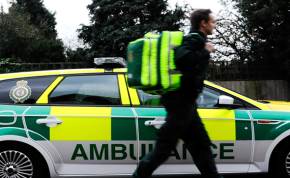
Ramadan will start on Monday (6th), continuing for 30 days.
As an ambulance service we are committed to providing high quality care for all our patients, and this includes showing understanding, compassion and sensitivity towards working with diverse communities – especially in the month of Ramadan.
The information below is a kind reminder of what Ramadan means.
What is Ramadan?
In Islamic tradition Ramadan is the ninth month in the Islamic calendar, when the first verses of the Koran/Qur'an were revealed to the Prophet Muhammad. Observing Ramadan is regarded as one of the five pillars of Islam.
When is Ramadan?
The dates of Ramadan change each year; this year it runs from 6th June to 5th July, although this can vary slightly depending upon regional customs and when the new moon is first sighted. It lasts for 29-30 days and ends with the celebration of Eid-Ul-Fitr. The Islamic calendar is lunar, which means that days start at sunset.
What do people do during Ramadan?
Many Muslims will fast each day from sunrise to sunset. This includes not eating food, drinking liquids or smoking. It is common to have one meal known as the suhoor just before sunrise, and an evening meal known as Iftar after sunset.
Ramadan is a time of prayer and self-reflection, where Muslims are encouraged to read the entire Qur'an.
Ramadan is also a time for charity-giving, which can involve both making donations and participating in charitable events.
Key workplace considerations during Ramadan
Observing Ramadan may be noticeable (for example not eating at lunchtime) and so it is often sensible for colleagues to inform their managers of the fact they are fasting.
For more information, please visit our equality, diversity and human rights pages on East24.
Published 2nd June, 2016